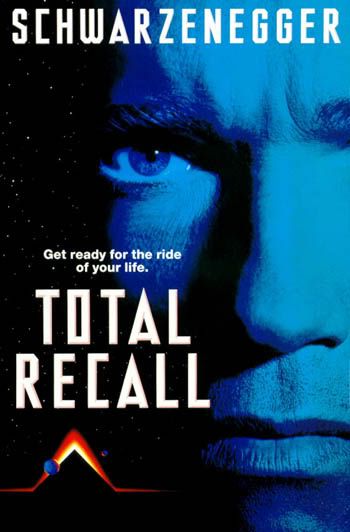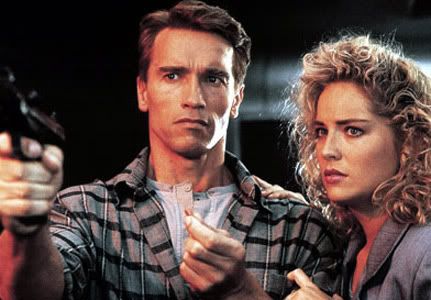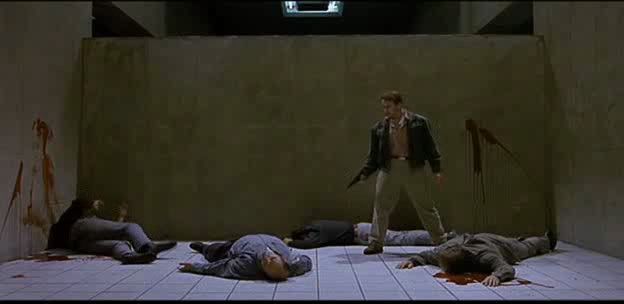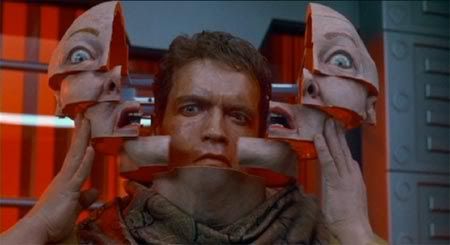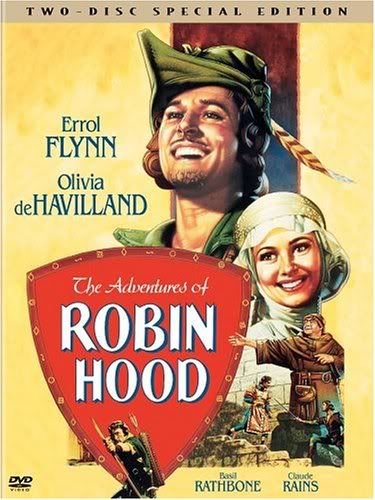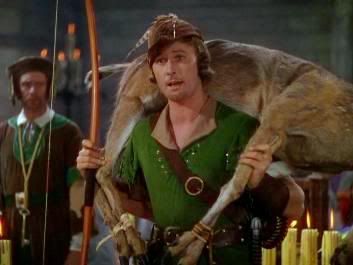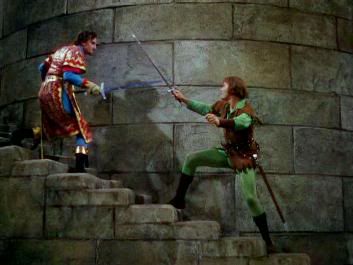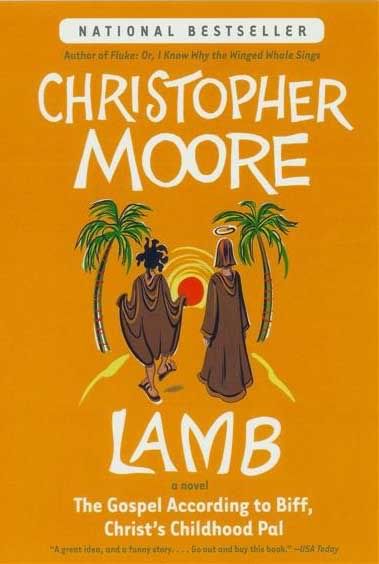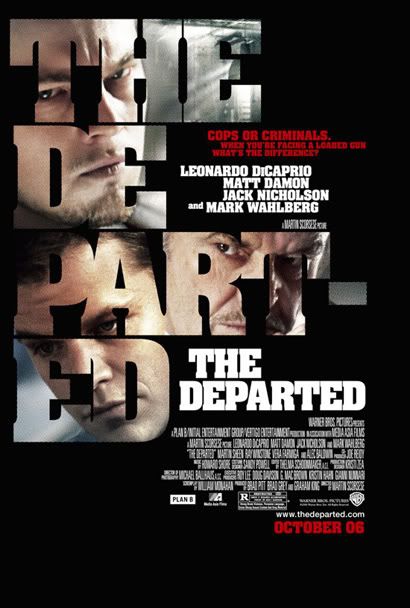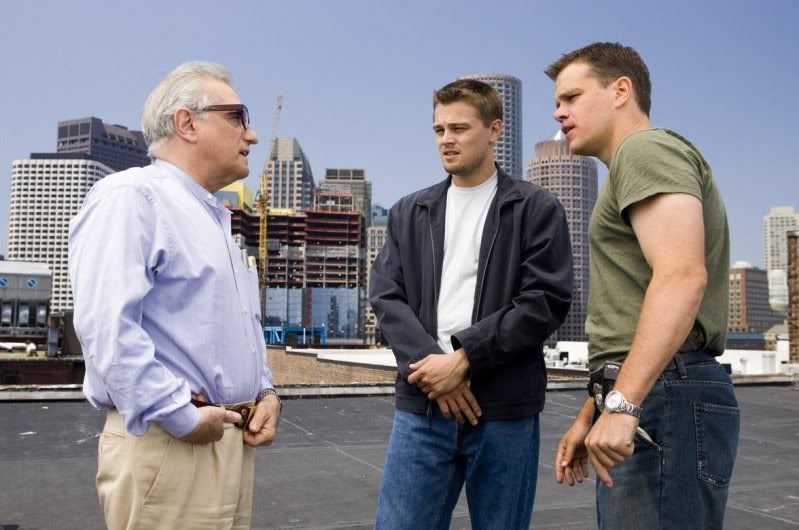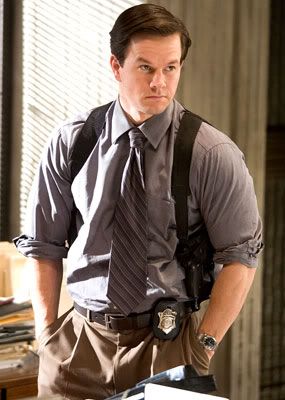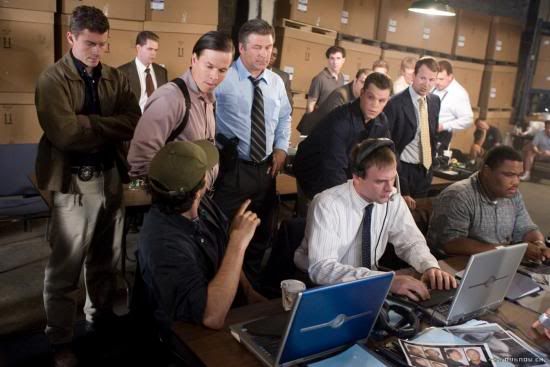Andrew Gyorkos brings us today’s guest post. He is an undergraduate student at the University of Toronto. His focus is on writing, journalism, and film. He does a lot of reviews. His personal site can be found at Confederate Wing Enjoy!
Knight and Day
There are people out there who would have you believe that a film which is likely to have no lasting impact on its audience, a film which is disposable, is a film which should not be praised or advocated under any circumstance. Such movies can be proficient in all other regards, featuring strong performances, exhilarating action, breezy pacing, and technically solid production, yet some people would still readily condemn it because a certain substantial quality is lacking. For many, Knight and Day is just such a film. Because its primary goal is to entertain and not necessarily to engage, one might indeed have difficulty recalling some of the finer details of the proceedings after the end credits roll. But why such a fact should be used to devalue either the experience of watching the film or even the merit of the entire production strikes me as being rather curious. If I enjoyed watching the movie, does it really matter if I can remember the enjoyment of watching it weeks, days, or even mere hours later?
This is exactly the question I had in mind not after watching Knight and Day itself, but rather after watching Movie Bob’s review of Knight and Day on “Escape to the Movies”. Before I go any further, however, I wish to make clear that the last thing I want to sound like is a critic who feels the need to validate their own opinions by making sure they align with that of either the professionals or the majority, and that I certainly hope that my reviews over the years don’t come off as sounding as such. It is withextreme apprehension that I dare even to mention the opinions of another as I detail my own sentiments. Having said this, it bears reiteration that Movie Bob was rather dismissive of Knight and Day in his review, largely owing to its rather disposable nature. While I agree that it is disposable, I disagree that it ought to be dismissed outright. The review that follows will be neither a direct response to Movie Bob’s position nor a disingenuous contrarian perspective. What it will be is the same sort of review you may have come to expect from me, the inevitable writing of which was inspired by Movie Bob and prompted by an opportunity from Josh Loomis (from Blue Ink Alchemy). I simply felt that I owed you, the reader, this brief preface explaining my unique frame of mind during this particular reviewing process.

Hot on the heels of the abysmal Killers, Knight and Day would initially appear to be cut from the same cloth of big names resigned to conducting an action romantic comedy trainwreck. Appearances can be deceiving, however, and it wouldn’t be entirely fair to discredit Knight and Day just because its one-line synopsis might resemble a disaster not yet a month old. So while the “innocent girl hooking up with mysterious lethal man” angle is unusually familiar for June 2010, you shouldn’t let the dreadful reception of one movie sour your enthusiasm for the other, no matter how similar they appear to be.
Using a peculiar blend of action, romance, and comedy, Knight and Day spins a pedestrian tale of international intrigue, presumably dumbed down so that it may amplify the effects of its disparate angles. The success of its genre mélange, especially the comedic tendencies, is largely owed to the immeasurable charm and charisma of Tom Cruise’s murder machine, Roy Miller, whose dreamy gaze and blunt reassurances can melt away all worry of imminent death even after he’s just shot you in the leg. The brand of humour on display here is easy to appreciate yet hard to describe. It’s neither the silly ineptitude associated with spy parody, nor the vulgarity associated with the modern day comedy of Kevin Smith or Judd Apatow. It’s the sort that comes from reacting to real, violent situations without expressing any real concern, treating the threats of rogue government agents and assassins as if they were nothing to be worried about, and trying to compel a companion who’s clearly not used to such scenarios to see it the same way.
This companion would be June Havens (Cameron Diaz) who had the unfortunate pleasure of being on the same flight to Boston as Roy Miller, a flight of which the two were the only survivors and thus became unlikely companions. Together, they travel the globe trying to prevent a powerful perpetual energy source from falling into evil hands, each trying to gain something very different from the experience. Roy is aiming for redemption and the restoration of his honour and integrity, and June is presumably aiming for the thrill of international espionage (and if she can have Roy fall in love with her, then so much the better).

Mixing romance and comedy isn’t a ground breaking formula, nor is further spicing it with action. What does break new ground, however, is when all three elements manage to work together to create a desirable product. Romance and action don’t blend as well as one might be tricked into thinking after 48 years of James Bond movies. Whereas action relies on suspension of disbelief to be effective, romance needs honest and genuine scenarios with believably compatible leads to work. If you’re going to make a real world action thriller with lead characters who are expected to fall in love with each other, and still want to make it funny as well, you’re going to be facing quite a challenge.
The way Knight and Day responds to such a challenge is, thankfully, quite clever. Instead of following Roy’s lead for the entire running time, an effort is made to let June have an active role. She’s the one, in fact, who made romantic advances on Roy. Albeit this was mere moments before she discovered his assassin-like attributes, and thus may seem to have been committed to him, if only subconsciously, well before the man of mystery business goes international. Or rather, this could be interpreted to be the case. Details that would shed some light on the rationale behind some of the character’s decisions seem to be glossed over to facilitate intrigue. Why doesn’t June walk away from Roy when he gives her the opportunity, for example? Or why doesn’t Roy just kill June or leave her to the whims of fate and the agencies after them for the sake of his mission? The occurrence of these questions could alternatively be seen as script failures, but ideally, I think that it should be left to the actors to make the romance convincing and not exclusively the script to indicate as such. And if my own explanations for the film’s inconsistencies still seem flimsy, then I must ask you, what good is a secret agent without his secrets?
With a focus more on energy and action than on logic, the biggest crime of which Knight and Day may well be accused is of being boring. And while I can’t in good conscience say that there’s never a dull moment, certainly there is never a dull moment that lasts for too long. From the opening set piece on an airplane to the ending confrontation in Spain, an effortless fluency of pace is kept. It’s not wall-to-wall action by any stretch of the phrase, but a real sense of urgency and tension does exist when the guns aren’t drawn. And when they are, the action is colourful and well choreographed. After years of big budget superhero films which settle disputes in cityscapes with satisfying thumps and crunches, it’s refreshing to see the humble street vehicle chase make an appearance in something other than a Bourne film.

In fact “refreshing” is just the word I’d use to describe Knight and Day in its entirety. It’s colourful, energetic, immensely enjoyable when approached from the right perspective, and, most of all, features an action star who doesn’t brood and mope around all day. So why the negativity for a film whose only ambition was to entertain for two hours, a film which is more thoroughly realized than can be said for anything made by Michael Bay post-Transformers? Is there no longer a place for the modest spy adventure between blockbuster superhero adaptations, low budget and low profile science fiction brilliances, and “love to hate” disaster spectacles that sink back into the mire whence it came? Did the filmmakers commit some sort of betrayal or offence by creating a movie that accomplishes precisely what it set out to do?
If anything about Knight and Day needs to be questioned, it’s why such filmmaking excellence and verve was spent on a rather generic action romantic comedy set up and not something more befitting of the talents involved. At the risk of sounding condescending, the average moviegoer won’t look this far under the surface. They likely won’t appreciate credits like “Director – James Mangold” and “Cinematographer – Phedon Papamichae”, despite their collaborations on such films as Identity (2003), Walk the Line (2005), and, most recently, the brilliant 3:10 to Yuma (2007). They’ve queued up for names like Tom Cruise and Cameron Diaz, perhaps in the hopes that their first shared movie in nearly a decade is more coherent than whatever Vanilla Sky (2001) was about. Names that the general movie-going public must still be somewhat apprehensive about, thanks to Tom Cruise’s couch-jumping Katie-loving shenanigans, and the fact that Cameron Diaz really hasn’t seen a role of this magnitude or caliber since the Charlie’s Angels sequel in 2003 (Shrek notwithstanding).
And if I’m to be entirely honest, I queued up for Knight and Day precisely because of Tom Cruise. General confidence in his ability allegedly skyrocketed after his outstanding cameo as Les Grossman in Tropic Thunder (2008), but my own confidence in his ability never really wavered. He’s still the same stellar actor from Minority Report (2002), The Last Samurai (2003), Collateral (2004), and Mission Impossible (1996, 2000, and 2006), questionable public persona be damned. The only real problem here is that Knight and Day seems to bank on the knowledge that most people are in the theatre because they want to see the actors and not necessarily because they want to see the movie. For this reason, you never really manage to suspend your disbelief. Obviously the real Tom Cruise doesn’t hop on government cars speeding down the interstate the same way he hops on couches during day time talk shows, yet you still feel like you’re watching the escapades of Tom Cruise and not his character, Roy Miller. Diaz’ character also suffers the same problem, except she’s afflicted mostly due to proximity. In the same way that you never really buy into Tom Cruise’s character, you never really buy into Tom Cruise’s character’s love interest.

Strangely, this natural aptitude for stargazing doesn’t extend to the supporting players. Peter Sarsgaard is menacingly meticulous and understated as the antagonist who may or may not actually be evil, Viola Davis comes across as the tough as nails agency director who’s been tempered in a bureaucratic man’s world, and Paul Dano (whom you may remember as “Klitz” from The Girl Next Door [2004]) is the film’s linchpin scientific savant. As an alternative to enjoying the frequent rollicking action set-pieces, it becomes rather fascinating to watch both well portrayed archetypal characters and characters who can’t outgrow their actors interact with each other. I’m still there for the action, mind you, but it’s an intriguing sublevel which is worth noting.
Yet in the end, a person goes to the movies aiming to spend $10 on two hours of surefire entertainment, not enlightenment. Knight and Day doesn’t offer nirvana, nor does it purport to do so. However what it does claim to offer is fun, the delivery of which is so rousing and effortless that, in some regards, only the most miserly of people would be unwilling to praise it for that, at least. Having said all this, let me conclude directly by saying that I highly recommend Knight and Day. It’s not the best movie you’ll ever see, nor is it the most memorable, but I personally find undeniable brilliance in its levity and charm. So as a staunch advocate as “cinema as fun”, Knight and Day earns my highest commendation.


